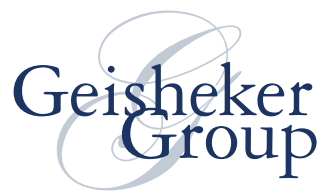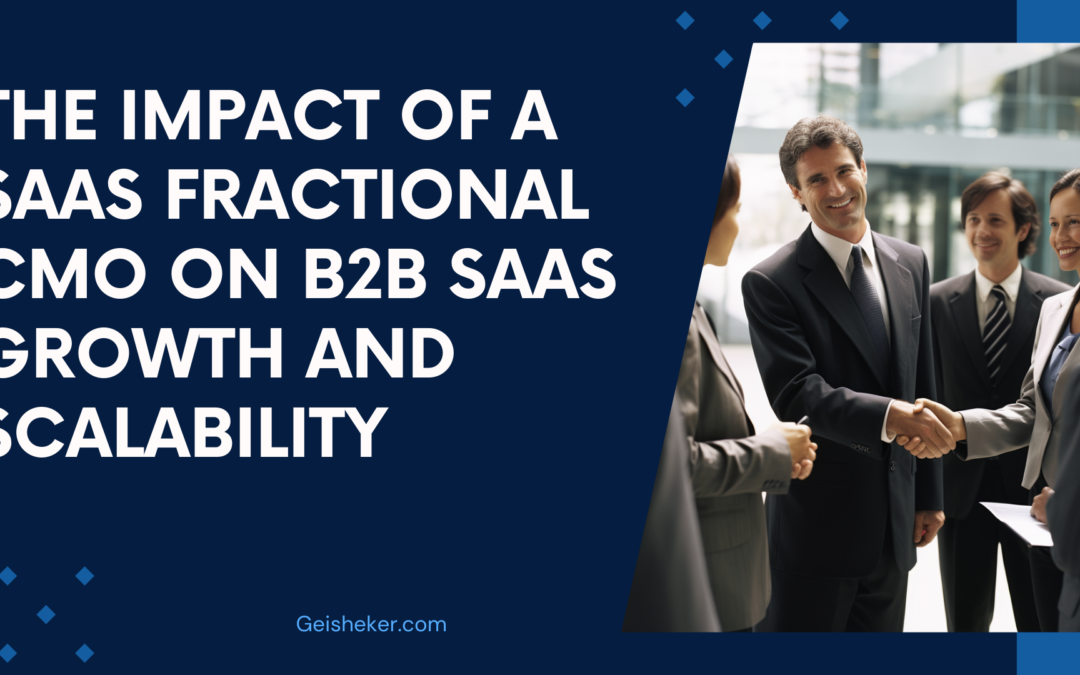The Growth of B2B SaaS and the Need for Marketing Expertise
The business-to-business (B2B) software-as-a-service (SaaS) industry has experienced rapid growth over the past decade. As more companies adopt cloud-based solutions for critical business functions like sales, marketing, customer service, and operations, the B2B SaaS market has expanded at a compound annual growth rate of over 20%. Many industry analysts predict strong continued growth.
However, successfully scaling a B2B SaaS company requires more than just developing the technology. It demands strategic marketing leadership to drive acquisition, activation, retention, and expansion. Without marketing expertise, growth can stagnate quickly despite having a solid product. Hiring an experienced Chief Marketing Officer (CMO) can be cost-prohibitive for earlier stage companies though. This is where fractional CMOs can make a major impact.
Understanding the B2B SaaS Fractional CMO Model
A fractional CMO is a marketing executive who works on a part-time, project, or interim basis. They provide the experience and expertise of a full-time CMO at a fraction of the cost. Leading fractional CMOs have held senior marketing roles at major corporations and startups. They offer B2B SaaS firms access to enterprise-level capabilities without taking on a full salary.
Fractional CMOs typically structure engagements in one of three ways:
Retained – Ongoing part-time commitment (e.g. 2-3 days per week, 40-80 hours per month)
Project – Brought in for a specific initiative (e.g. developing a growth strategy)
Interim – Serve as the acting CMO for a set period (e.g. 3-6 months)
The model allows earlier stage B2B SaaS companies to only pay for the precise marketing leadership they currently need. As their marketing sophistication and budgets grow over time, they can increase the fractional CMO’s hours and scope.
Key Impacts on Growth for B2B SaaS
Leveraging a fractional marketing executive has proven instrumental for many B2B SaaS firms looking to accelerate growth and scale efficiently. Some of the key impacts include:
Data-Driven Strategy
An experienced fractional CMO will bring data-driven rigor to the company’s marketing strategy. Using market research, competitive analysis, customer insights, and attribution modeling, they can assess strategic priorities and opportunities. This enables the leadership team to align around measurable objectives and key results that drive growth. Rather than ineffective one-off tactics, marketing initiatives contribute to a cohesive acquisition and expansion roadmap.
Specialization
No single marketer possesses specialized expertise across every function needed to scale growth for a B2B SaaS firm effectively. Demand generation, product marketing, lifecycle campaigns, sales enablement, branding – these require focus and depth. The fractional model allows companies to tap CMOs with specific backgrounds tailored to current priorities, then rotate in other specialists over time. This level of functional expertise is difficult for most startups to attract and manage with a solo marketing generalist or even a small in-house team.
Flexibility
High-trajectory B2B SaaS companies need to nimbly adapt strategies to capitalize on new opportunities. The fractional CMO model offers greater flexibility to dial marketing initiatives up or down. For example, if the sales team is outpacing lead flow, retention lags emerge, or new competitive threats appear, marketing priorities need to shift. A fractional CMO can reallocate effort and budget rapidly without major disruptions, providing the level of agility required to optimize growth investments.
Neutral Objectivity
Effective marketing strategy requires objectivity and thoughtful scrutiny of assumptions across the business, not just the marketing function itself. As outside experts, fractional CMOs can impartially audit everything from the value proposition, sales model, and customer success processes to the tech stack, workflows, and analytics practices. These unbiased perspectives strengthen decision-making and alignment for founders, investors, and employees.
Benchmarking
In addition to the strategic and executional benefits, fractional CMOs also provide valuable benchmarking for B2B SaaS leadership teams and boards. Their breadth of experience working with companies at various growth stages and across numerous industries gives them unmatched perspective. Executive teams gain reassurance that their performance trajectories, budgets, and resource allocation compare favorably based on real-world norms. This benchmarking can also prove useful during capital raising.
Key Impacts on Scalability
Beyond growth, fractional marketing executives also enable critical elements of scalable, repeatable models that serve as the foundation for efficient expansion. Two examples stand out.
Process Building
Rather than ad hoc initiatives, installing well-designed processes is vital to scale any function, especially complex ones like marketing. An experienced fractional CMO guides teams on priorities like adopting Agile development workflows between Product Marketing and Demand Generation or implementing customer lifecycle management frameworks powered by CRM and MAP. Documenting processes, providing templates, and training team members instills institutional knowledge. This allows SaaS companies to ramp marketing capacity predictably even after the fractional CMO engagement ends.
Technology Optimization
Martech and analytics tools comprise the technical backbone needed to scale efficiently, but many platforms go severely underutilized. Fractional CMOs can objectively evaluate existing tech stacks and data architecture. Their experience also brings best practices for workflows, integrations, and reporting dashboards that improve stack ROI. The result is far greater leverage from tools the company already owns and avoids overspending on additional platforms until there is a clear need.
Leveraging a fractional marketing executive has proven instrumental for many SaaS firms looking to accelerate growth and scale efficiently. Some of the key impacts include:
Data-Driven Strategy
An experienced fractional CMO will bring data-driven rigor to the company’s marketing strategy. Using market research, competitive analysis, customer insights, and attribution modeling, they can assess strategic priorities and opportunities. This enables the leadership team to align around measurable objectives and key results that drive growth. Rather than ineffective one-off tactics, marketing initiatives contribute to a cohesive acquisition and expansion roadmap.
Specialization
No single marketer possesses specialized expertise across every function needed to scale growth for a B2B SaaS firm effectively. Demand generation, product marketing, lifecycle campaigns, sales enablement, branding – these require focus and depth. The fractional model allows companies to tap CMOs with specific backgrounds tailored to current priorities, then rotate in other specialists over time. This level of functional expertise is difficult for most startups to attract and manage with a solo marketing generalist or even a small in-house team.
Flexibility
High-trajectory SaaS companies need to nimbly adapt strategies to capitalize on new opportunities. The fractional CMO model offers greater flexibility to dial marketing initiatives up or down. For example, if the sales team is outpacing lead flow, retention lags emerge, or new competitive threats appear, marketing priorities need to shift. A fractional CMO can reallocate effort and budget rapidly without major disruptions, providing the level of agility required to optimize growth investments.
Neutral Objectivity
Effective marketing strategy requires objectivity and thoughtful scrutiny of assumptions across the business, not just the marketing function itself. As outside experts, fractional CMOs can impartially audit everything from the value proposition, sales model, and customer success processes to the tech stack, workflows, and analytics practices. These unbiased perspectives strengthen decision-making and alignment for founders, investors, and employees.
Benchmarking
In addition to the strategic and executional benefits, fractional CMOs also provide valuable benchmarking for B2B SaaS leadership teams and boards. Their breadth of experience working with companies at various growth stages and across numerous industries gives them unmatched perspective. Executive teams gain reassurance that their performance trajectories, budgets, and resource allocation compare favorably based on real-world norms. This benchmarking can also prove useful during capital raising.
Key Impacts on Scalability
Beyond growth, fractional marketing executives also enable critical elements of scalable, repeatable models that serve as the foundation for efficient expansion. Two examples stand out.
Process Building
Rather than ad hoc initiatives, installing well-designed processes is vital to scale any function, especially complex ones like marketing. An experienced fractional CMO guides teams on priorities like adopting Agile development workflows between Product Marketing and Demand Generation or implementing customer lifecycle management frameworks powered by CRM and MAP. Documenting processes, providing templates, and training team members instills institutional knowledge. This allows SaaS companies to ramp marketing capacity predictably even after the fractional CMO engagement ends.
Technology Optimization
Martech and analytics tools comprise the technical backbone needed to scale efficiently, but many platforms go severely underutilized. Fractional CMOs can objectively evaluate existing tech stacks and data architecture. Their experience also brings best practices for workflows, integrations, and reporting dashboards that improve stack ROI. The result is far greater leverage from tools the company already owns and avoids overspending on additional platforms until there is a clear need.
Assessing If a B2B SaaS Fractional CMO Aligns
The fractional growth model clearly provides impactful benefits, but how can B2B SaaS leadership teams assess if the approach fits their unique context and objectives? Three key questions help determine alignment:
- Does the company need senior marketing expertise beyond current team capabilities to drive the next stage of growth?
- Is acquiring that expertise feasible given budget constraints and existing headcount?
- Does the executive team recognize that growth relies on marketing and sales optimization not just product features?
If the answer to these questions is a resounding yes, then a fractional marketing executive likely warrants strong consideration.
Of course, assessing the right cultural fit and compatible vision is also essential when engaging a fractional CMO. They will operate as a pseudo co-founder in many respects. But that level of integration also enables tremendous momentum. With the fractional model, high-growth SaaS companies can literally afford to have the marketing strategies and institutional capabilities of multi-billion dollar giants. This serves as an extraordinary asset to drive scale, improve valuations, and command the market.
Conclusion
The B2B SaaS industry faces no shortage of growth opportunities in the years ahead. However, successfully captializing on that potential requires rigorous, data-driven marketing strategies and execution. The fractional CMO model allows earlier stage B2B SaaS firms to tap this expertise in a flexible, cost-efficient manner aligned to their evolving needs.
For leadership teams laser-focused on growth, fractional marketing executives exemplify high-impact, capital efficient investments. They not only accelerate top line trajectory but also put in place the scalable processes, talent development, and technology essential to sustaining that momentum in the future. Hence, fractional CMOs merit consideration by any SaaS founder prepared to put marketing at the crux of their growth engine.
Hire a Leading B2B SaaS Fractional CMO
If your company needs a B2B SaaS fractional CMO, consider working with Peter Geisheker. Peter has been providing Fractional CMO services for over 20 years and has expertise in growth tactics and conversion optimization. View Peter’s SaaS fractional CMO case studies.


